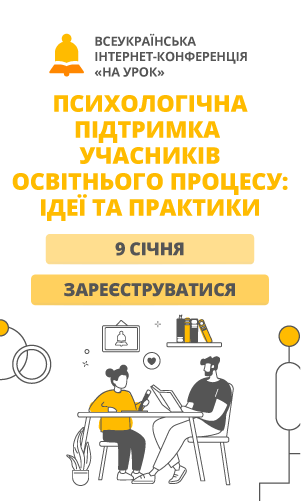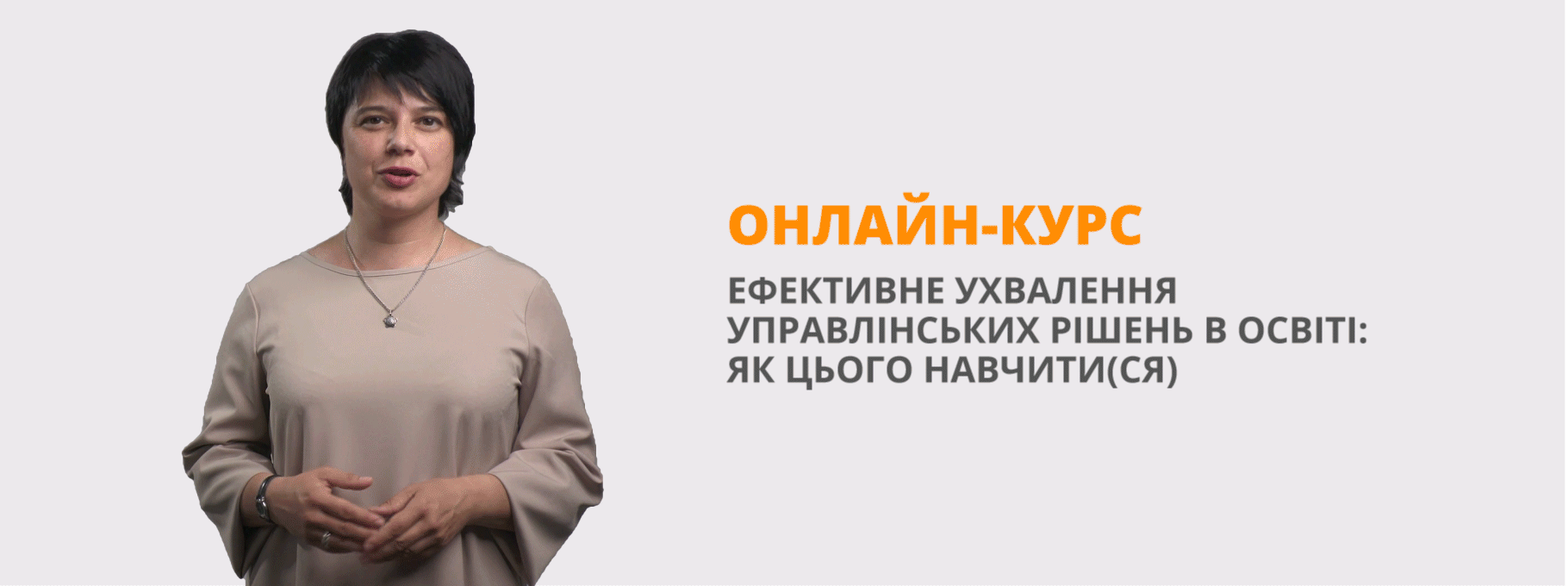"Environmental protection"
Методична розробка уроку з англійської мови у
7-А класі
Тема уроку: Environmental protection
З досвіду роботи:
вчителя англійської мови
Ласкорійчук Іванни Василівни
Заліщики - 2019р.
Lesson topic: Environmental protection
Aim:- to stimulate using of vocabulary, to master Zero/First Conditional usage , create and demonstrate projects on the E-Twinning Plus Portal.
Instructional: to expand students' knowledge about the environmental pollution, to enrich vocabulary, to practise skimming and scanning, to develop reading, listening and communicative skills.
Developing: to develop culture of communication and speech reaction of pupils, to teach pupils how to be able to acquire information from texts and express their own views and assumptions, to develop students' attention, memory and intelligence.
Educational: to bring up the independence, interest in learning a foreign language, clarity of expression, to educate polite attitude to each other.
Equipment: the textbook Oxford Team Unit 9, p. 78, natural disasters pictures, , educational sites, cards, Piktochart presentation.
Type of the lesson: combined lesson.
Procedure
І. Greeting
Т: Good afternoon, everybody! I'm glad to see you! How are you? Sit down, please.
Cl: Good afternoon! We are glad to see you, too. We are fine, thank you.
Warm-up
Т: The topic of our today's lesson is " Environmental protection ". By the end of the lesson you should be able:
- to recognize and understand new words and word combinations in the text;
- to read and understand the gist and details despite the natural difficulties;
- to participate in common conversational exchanges about the topic of today's lesson.
- to master the First Conditional properly.
Warm up: pupils recite short poems.
Teacher says the season and students should describe it.
Whether the weather be fine,
Or whether the weather be not,
Whether the weather be cold,
Or whether the weather be hot, We'll weather the weather
Whatever the weather, Whether we like it or not!
Phonetic drills:
Whisper down the line
Students make two lines. The first student whispers the word to the second students then they must whisper it down their line. When it reaches the student at the back of the line they must run to the board, write it and shout it out. If they do it first and correctly they win.
Teacher writes two different sounds on the board and pupils must write the words for them. For example: ou au
most found
smoke cloud
joke mouth
bone loud
hope bound
rope house
Homework: students demonstrate their projects from the E-Twinning profile.
ІІ. The main part of the lesson.
Vocabulary revision: http://learnenglish.britishcouncil.org/en/vocabulary-exercises/weather
Vocabulary demonstration: https://padlet.com/yana_rock_89/pu9rw3ddgmni
Vocabulary practice: https://learningapps.org/1631196
Listening: students listen to the dialogue and write out the words about disasters.
GAME «Bankrupt». Collect the vocabulary flashcards you aim to revise, and stick behind them cards showing an amount of money, like Us$500, Us$ 100 and so on. One or two of them should say BANKRUPT and another DONATION. Stick the flashcards on the board. Be careful students don't see money cards. Divide the class into two groups. Students take turns to choose one of the flashcards, say the item on them, or a sentence using that word, as you prefer. If they say it right they gain the amount of money at the back. If it says Bankrupt, you erase the money they had won, and if it says Donation, that team donates all their money to the other group.
Reading Activities
The Teacher gathers the Pupils in three groups and offers them three different texts. The task is to look through, to find and read out:
- polluters;
- problems they cause;
- possible solutions.
CARS
The biggest polluter today is the car. This problem is especially bad in some cities where on days when there is not much wind, a brown layer of smog hangs in the air.. Governments then build new roads to try to improve the situation, but this means that they cut down trees and destroy more of the countryside. One of the main problems with cars is that they cause a lot of pollution and often carry only one person. Public transport is more environmentally friendly because buses and trains can carry large numbers of people at the same time. Even cleaner solutions are electric cars and bicycles.
PLANTS AND FACTORIES
Pollution is damage to the air, seas, oceans, rivers or land caused by chemicals, toxic waste and harmful gases, as a result — acid rain, holes in the ozone layer.
Acid rain is rain that is harmful to the environment because it contains acid from factory smoke. Acid rain causes damage to trees, rivers and buildings.
The ozone layer is a layer of gases that protects us from ultraviolet radiation from the Sun, which can have a harmful effect on animals and causes skin cancer in humans. We can help the environment by recycling or choosing to buy green products. Recycling is when you use something again instead of throwing it away. Glass, cans, paper and plastic can be recycled. Examples of green products are recycled paper, wood and organic fruit and vegetables.
POWER STATIONS
The greenhouse effect is caused by harmful gases known as greenhouse gases. These gases are produced when we burn fuels, especially coal burned in power stations to make electricity.
These gases go up into the Earth’s atmosphere and stop heat from leaving the Earth.
Because the heat cannot escape, the Earth is getting warmer. This is known as global warming. Global warming may cause the ice at the North Pole and South Pole to melt and seas levels to rise, leading to serious flooding in many parts of the world. In other places temperatures will rise and there will be less rain, turning more of the land into desert.
Renewable energy sources such as wind power, wave power and solar power do not pollute the environment. They are much cleaner than oil and coal.
Grammar (Zero/ First Conditional)
Match the two parts of the sentences.
- If animals don't eat,
- If I read for a long time,
- If you don't sleep,
- If you mix flour and water,
- If water freezes,
- you feel tired,
- you get nine, they die.
- it turns into ice.
- I get a headache.
- you make paste.
Make the sentences.
eat too much / feel sick
If you eat too much, you feel sick.
- lie in the sun / burn
- not work hard / not get good marks
- divide 100 by 5 / get 20
Piktochart presentation
https://create.piktochart.com/output/24913509-new-piktochart?presentation=true
We use the first conditional to talk about things that are likely to happen.
|
Match the two parts of the sentences. |
||
|
1 |
If you walk fast, |
I won't go out. |
|
2 |
If he passes all his |
you'll get there |
|
|
exams, |
soon. |
|
3 |
If you don't leave |
I'll come out |
|
|
now, |
with you. |
|
4 |
If it rains tomorrow, |
he'll go into the next class. |
|
|
|
|
Grammar, listening practice: http://learnenglishteens.britishcouncil.org/grammar-vocabulary/grammar-videos/conditionals
Writing
“Catch a mistake!” (Writing Activities)
The Teacher offers the Pupils to correct a mistake in each sentence.
- If I will feel bad, I will go to the doctor.
- If she will be hungry, she will cook dinner.
- When it won’t snow, we will go skiing.
- If we will do nothing, our planet will be in danger.
- If you listened to the weather forecast, you will take an umbrella.
Game: students write the first part of their sentence on one piece of paper and the second part on a different part of paper. Then give the first piece of paper to their partner, who writes down an ending for each sentence. When all the sentences are complete , the two students compare the new sentence with the originals. Are they the same or different?
Skills Activities (Speaking Activities – Interaction)
The Teacher tells the Pupils that it’s very important to protect NATURE – so our PLANET, because it is our only home and we have no other one.
Skills Activities
The Teacher reminds the Pupils: “If we don’t save our Planet, we will die” and asks to tell what they do to save our PLANET.
Lesson outcome
T: Thank you for your good and productive work. What have you learnt today? What was easy or difficult for you? Everyone got good marks from the lesson.
Hometask:
To write 10 sentences how we can protect our planet, for example: if we cycle more, we will breathe fresh air. The lesson is over. Good-bye!
1


про публікацію авторської розробки
Додати розробку

